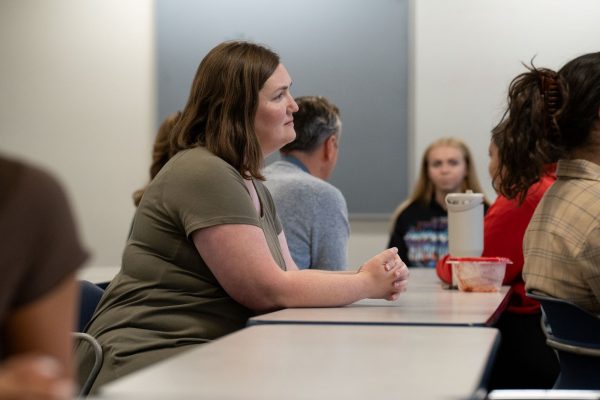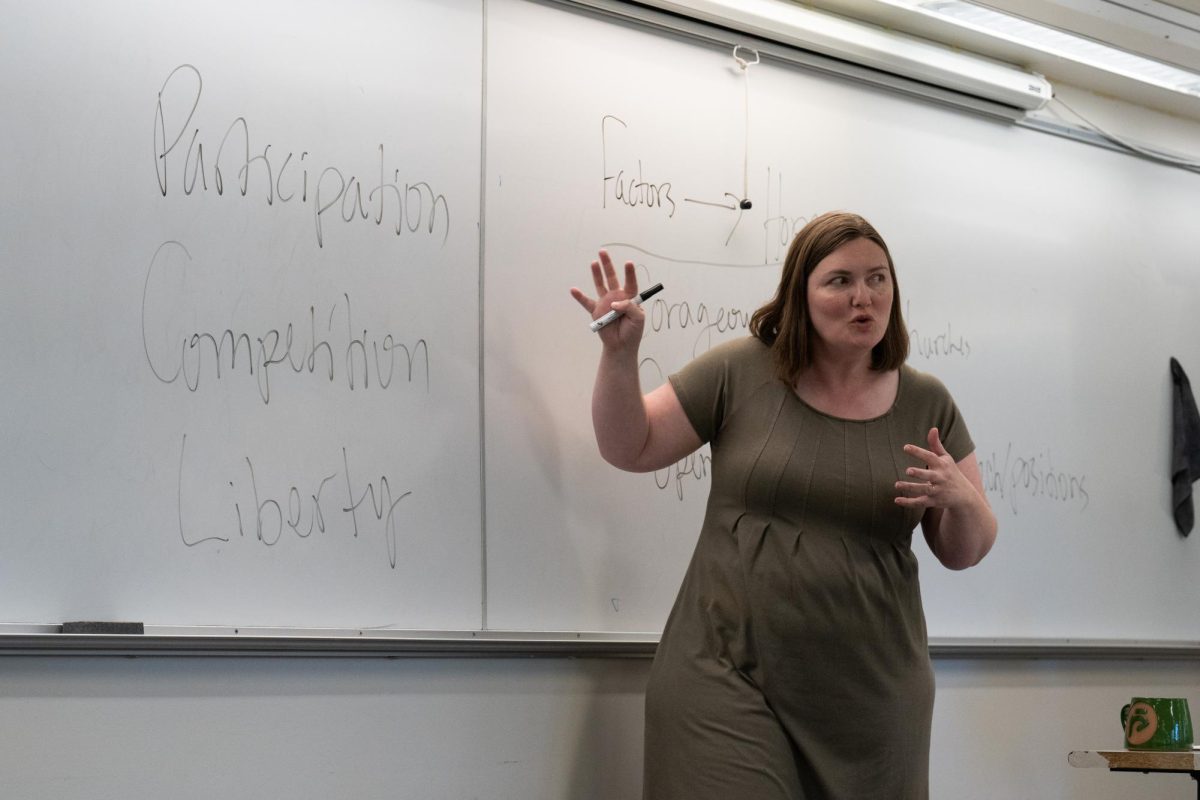On Wed. Oct. 2, Patricia Bruininks and Megan Hershey presented a “Hope & Democracy” discussion as part of the Whitworth University’s Election Year Speaker Series. Bruininks, a psychology professor, spoke on hope and how hope can motivate and influence people’s perspectives on politics. Hershey, a political science professor, then led a discussion that allowed students to break off into small groups and share the differing factors that influenced their hopes and fears in current politics.
Students brought up hopes for cooperation, unity, open discussions, youth participation, freedom and a belief that things can change. These hopes were then guided in discussion to what the general factors of hope are. These factors included courageous conversations, community discussion and open forums where, as Hershey puts it, it “takes courage to ask honest questions.”
The fears from students revolved around misinformation, specifically within social media and the news; violence; political gridlock; the disappearance of the church and state divide; civic education becoming polarized; and an all-or-nothing mentality. These were guided into factors of fear being an uncertainty to truth and increasing apathy to politics.

Hershey, who teaches comparative politics, concluded the discussion by reframing the fears of students with a comparison of U.S. politics against different political systems around the world, saying this grants “fresh eyes when it comes to U.S. politics.” She named the three features of democracy, which are participation, competition and liberty. Hershey was able to demonstrate that U.S. politics not only encourages participation, as being involved in the process can help, but has high competition and liberty.
The discussion ended with encouragement for the students. Everyone can participate in democracy by registering to vote and engaging in local politics. Hershey spoke about the politics club at Whitworth, which is “a great way to get connected and start talking with like-minded people about how to make a difference.” She also recommended going to Spokane’s city council meetings “to find out what is happening in the community and what the big issues are.”
Bruininks reflected on the need for hope and democracy, saying, “We can help each other during our lulls of hope and our regaining of hope. At a place like Whitworth, it’s really important that this group does not lose hope because of the potential of what they can learn.” She recommended, for further reading on the importance of hope, the book Hope in the Dark by Rebecca Solnit in which she says talks about “being able to think of the many possible outcomes that are related to being hopeful” and “the benefits of people coming together.”







